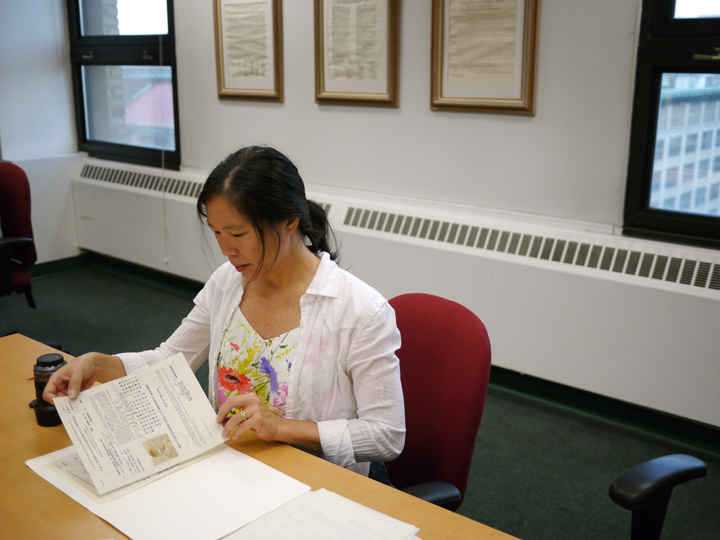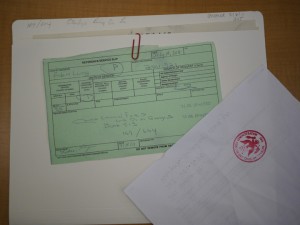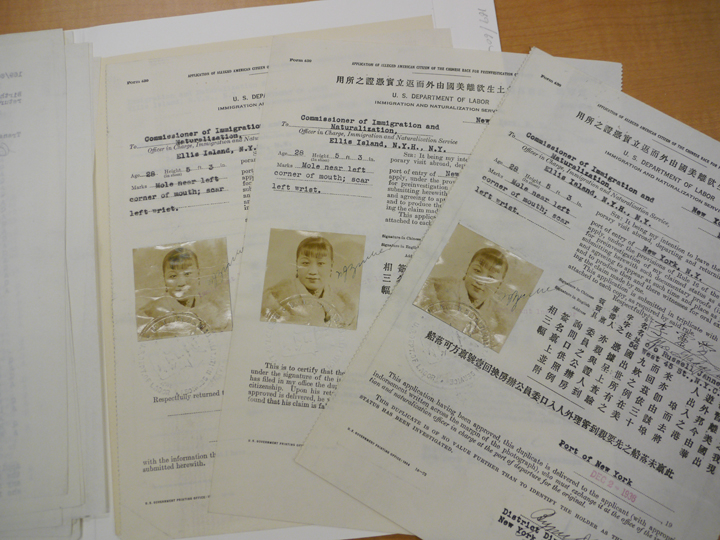Upcoming Screenings:
no event
Follow us on Facebook
HELP BRING FINDING KUKAN TO CLASSROOMS
Sign up for our mailing list.
Tag Archives: Chinese Exclusion files
July 23, 2011 — A Visit to the New York City Office of the National Archives
When I first started checking to see if Li Ling-Ai could have been the real life inspiration for the fictional detective Lily Wu, I tracked down some of her travels through boat records that are available on Ancestry.com. One of the Ancestry records was a New York Exclusion file that listed the date of her arrival in San Francisco. Going over the notes on the record again, I saw that Li Ling-Ai’s file included an interrogation. Since the interrogation occurred only a year before Li Ling-Ai met Rey Scott and conceived of making the movie KUKAN, I was anxious to read through the interrogation to see if it contained any clues. In July I finally got a chance to visit the NYC office of the National Archives where Li Ling-Ai’s Exclusion file is located.

Robin Lung examines Li Ling-Ai’s Chinese Exclusion File at the NYC office of the National Archives
It was amazingly well-preserved, and I had a lot of mixed emotions while examining it. On the one hand, I was excited to see a photograph of Li Ling-Ai in the file that I had never seen before and letters that were hand-written by her. Handling the documents gave me a very visceral connection to the past and to this woman that I have been pursuing for the last couple of years.

Li Ling-Ai’s Chinese Exclusion File
On the other hand I was appalled that this file existed in the first place. I had to think about the blatant anti-Chinese discrimination that led to The Chinese Exclusion Law — the reason for the creation of the file I was touching. I was astounded that a U.S. citizen like Li Ling-Ai (she was born in Hawai‘i in 1908 when it was already a U.S. Territory) who had a U.S. Passport (documented in the file) would have to spend days at the NYC Immigration Office in order to get a re-entry form that would make it possible for her to come back to her own country after leaving it! And that she would have to sit through an interrogation to prove that she was authentic despite all the other documentation she had made me even more indignant.
As a researcher, I was thankful to be able to access the revealing information in the file and draw both the positive and negative energy from it. So I have to acknowledge the hard work that goes into indexing, storing and retrieving these records. That day at the Archives I witnessed two volunteers who were laboriously going through files and entering data into laptops so that others like me could find information about ancestors and characters from the past. I wish I had gotten their names and taken photos of them if only to pay a small homage to all the others like them who have helped forward my investigation.

Documents in Li Ling-Ai’s Chinese Exclusion File



